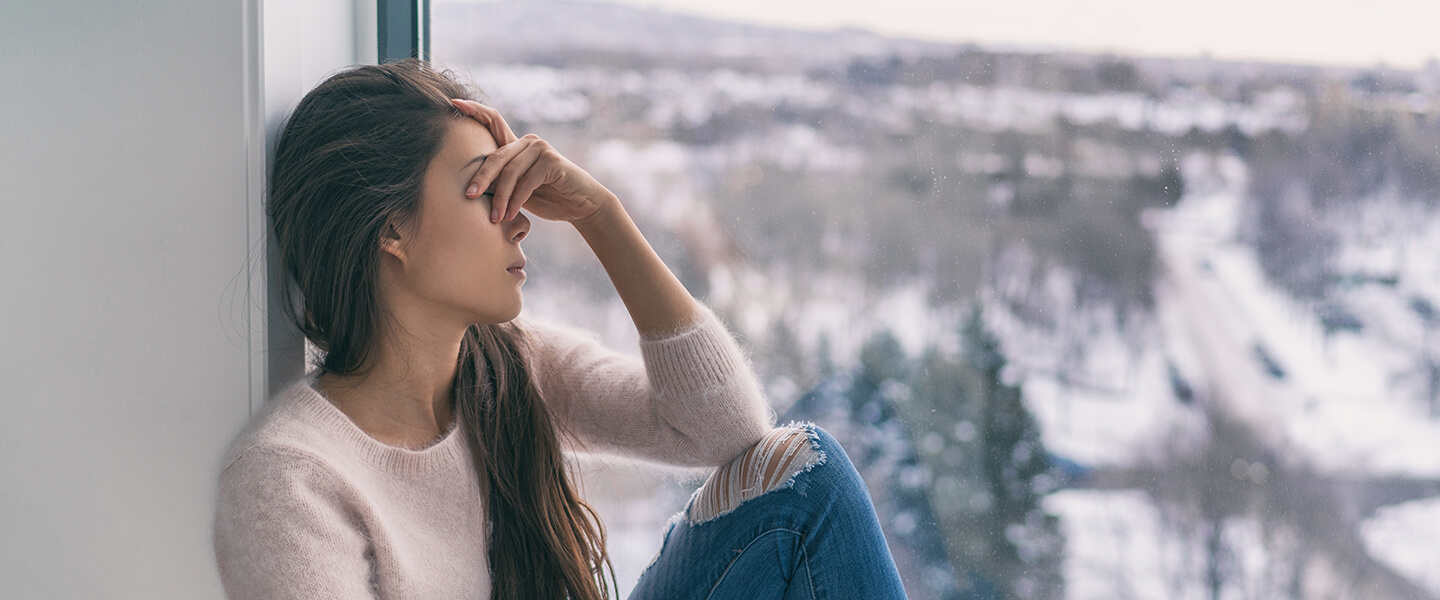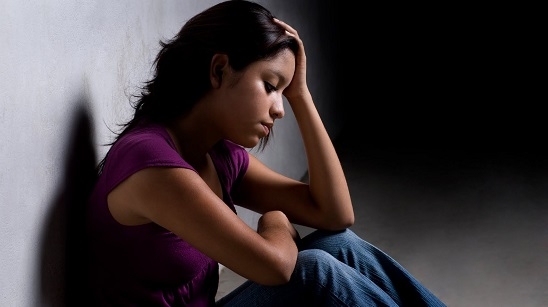Winter brings with it the joys of cozy blankets, warm beverages, and festive cheer. However, for many people, this season can also trigger feelings of sadness and depression. Seasonal Affective Disorder (SAD), also known as winter depression or winter blues, affects millions of people worldwide every year. Winter depression treatment is essential to cope with the symptoms that arise due to SAD. In this article, we’ll discuss all treatment options available so that you can enjoy the holiday season without feeling overwhelmed by gloominess.
Contents
What is Winter Depression?

Winter depression is a type of depression that occurs during the winter months. It is also known as Seasonal Affective Disorder (SAD). Symptoms include fatigue, decreased activity levels, weight gain, and difficulty concentrating. People with winter depression may feel overwhelmed and hopeless about their situation.
There are many potential causes of winter depression. One theory is that it may be caused by a lack of sunlight. This is because during the winter months, there is less daylight and people tend to spend more time indoors.
Treatment For Winter Depression

It is very important to understand that winter depression is a real condition and should be taken seriously. While the exact cause of winter depression is unknown, there are several treatment options available to help manage the symptoms and reduce their severity.
Medications
One type of treatment that can be effective for managing the symptoms of winter depression is medications. These can help regulate mood, as well as relieve physical and psychological symptoms.
Some people find it helpful to take prescription antidepressants, such as SSRIs or SNRIs. These medications can help improve mood and reduce the symptoms of winter depression. Other medications, such as melatonin, can be taken to regulate sleep patterns and help counteract the lack of sunlight that is associated with winter depression.
Some the medications like SSRIs and SNRIs should only be taken under the supervision of a doctor. It is important to discuss any potential side effects with your doctor before taking these medications.
Therapy
Therapy can also be an effective treatment for winter depression. Some of the types of therapy are:
Cognitive-behavioral therapy
CBT is one of the most popular and effective therapies for treating winter depression. CBT helps people identify, challenge, and replace negative thoughts with more positive ones. This can help reduce the symptoms of winter depression and improve overall well-being. This therapy can be done either in-person or remotely, such as through video conferencing.
Interpersonal therapy
This form of therapy focuses on the individual’s interpersonal relationships and how they might be influencing their winter depression. The therapist helps the person identify any potential issues that may be contributing to their symptoms and provide guidance on how to better manage them.
Light therapy
Light therapy is a type of treatment for winter depression that uses artificial light to simulate natural sunlight and regulate the body’s production of hormones. Light boxes are often used for this purpose. It is important to consult with a doctor about using light therapy as it may cause eye strain or other side effects.
Dialectical Behavioral Therapy
Another treatment option for winter depression is Dialectical Behavior Therapy (DBT). This therapy focuses on teaching skills such as mindfulness, distress tolerance, and emotion regulation to help individuals manage their symptoms. It can be done either one-on-one with a therapist or in a group setting.
Acceptance and Commitment Therapy
Acceptance and Commitment Therapy (ACT) is another treatment option for winter depression. This therapy focuses on mindfulness, acceptance, and commitment to change. It helps individuals develop skills to cope with their symptoms in a healthier way.
Support Groups

Another form of treatment for winter depression is support groups. These can be a great way to connect with others who are dealing with similar issues and provide emotional support. Joining a support group can also help reduce feelings of isolation and loneliness, both of which can exacerbate the symptoms of winter depression.
There are many types of support groups available that offer various perspectives and approaches to managing winter depression. It is important to find one that is right for you and fits your needs.
Online and offline support groups are both available, depending on where you live and how comfortable you are with engaging in virtual support groups.
Lifestyle Changes
Another way to treat winter depression is to make lifestyle changes. This may include :
Getting More Exercise
One of the best things you can do to battle winter depression is to get more exercise. Regular physical activity helps boost the body’s production of endorphins, which are known to help improve mood and reduce stress. You don’t have to spend hours in a gym—even just taking regular walks outside can work wonders for your mental health.
Roaming In Sunlight
An easy way to get more sunlight is to go for a walk or sit outdoors. Even on cold, overcast days, your body can absorb some of the sun’s rays and help boost serotonin levels in your brain. Sunlight exposure helps reset your circadian rhythms too, which can reduce fatigue and improve mood.
Getting Enough Sleep
When winter arrives, it can be tempting to stay up late and sleep in. But too much or too little sleep can make your depression worse. Aim for 7-8 hours of restful sleep each night to help you manage your mood better.
Seeking Social Support
Having a strong social network is an important part of managing winter depression. Being around friends and family can help boost your mood, even if you’re not able to get outside as much. Don’t be afraid to reach out for help—talking to someone who understands what you’re going through can make a big difference.
Making Healthy Diet Choices
Diet is also an important factor in managing winter depression. Eating a balanced diet of nutrient-rich foods can help regulate your mood and provide energy to stay active. Try to limit processed or sugary snacks that can actually make you feel more sluggish, and instead focus on fruits, vegetables, proteins, and winter whole grains.
When To Seek Help For Winter Depression?

If you’re feeling down during the winter months, it’s important to seek help. Winter depression is a real and serious condition that can hurt your life. There are many effective treatments available, so there’s no need to suffer.
If you’re experiencing any of the following symptoms, it’s time to seek help:
- Feeling sad or blue most of the time
- Loss of interest in activities you used to enjoy
- Sleeping more than usual or having trouble sleeping
- Changes in appetite or weight
- Feeling sluggish or agitated
- Difficulty concentrating
- Feeling hopeless or worthless
- Thoughts of death or suicide
If you’re experiencing any of these symptoms, don’t wait to get help. Talk to your doctor about your options. There are many effective treatments available, so you can start feeling better soon.
Which Method To Choose?
There are many different treatment options available to people who suffer from winter depression. While some may find relief through lifestyle changes and natural treatments, others might require more intensive methods such as psychotherapy or medications.
Some of the factors that can affect the choice of these methods are:
Intensity of Signs
One factor that can affect which method should be chosen is the intensity of the symptoms. People with mild winter depression can often find relief by making lifestyle changes and utilizing natural treatments, such as light therapy or exercise. Those with more severe symptoms may need to utilize psychotherapy and medications to get relief.
Availability of Resources
It’s also important to consider the resources available. For some, psychotherapy may not be an option due to financial constraints or lack of access. In these cases, natural treatments and lifestyle changes may help provide relief.
Personal Preference
Finally, personal preference should also be taken into account when choosing a treatment option. While medications may work well for one individual, others may prefer to use psychotherapy or natural treatments instead. The goal should be to find the treatment option that works best for each individual’s needs and preferences.
What If It’s Left Untreated?

Sometimes people may ignore the symptoms of winter depression, often because they don’t want to seek help or feel there is no need for it. Unfortunately, this can cause their symptoms to become more severe and even lead to long-term mental health problems.
Left neglected, some of the impacts can be on physical health. Impacts can be on work performance, sleep patterns, and energy levels. If a person has been having trouble sleeping or staying alert during the day due to lack of sunlight, this could lead to physical ailments such as headaches and fatigue.
In addition, isolation can increase feelings of loneliness and depression which can further fuel more intense feelings of sadness and hopelessness.
Conclusion
Winter depression can be a difficult thing to manage but thankfully, there are many treatments available. From drug-based therapies to lifestyle changes, light therapy, and cognitive behavioral techniques, there is something that can work for everyone.
Finding the right treatment path depends on your individual needs and circumstances so it’s important to talk to a healthcare professional if you think you may be suffering from winter depression or any other form of seasonal affective disorder. With the correct guidance and support, it is possible to alleviate symptoms and lead a happier life during the colder months ahead.
For more information, please contact MantraCare. Depression is a mental illness characterized by persistent feelings of sadness, hopelessness, and loss of interest in daily activities. If you have any queries regarding Online Depression Counseling experienced therapists at MantraCare can help: Book a trial Depression Therapy session


